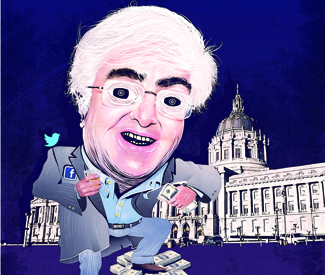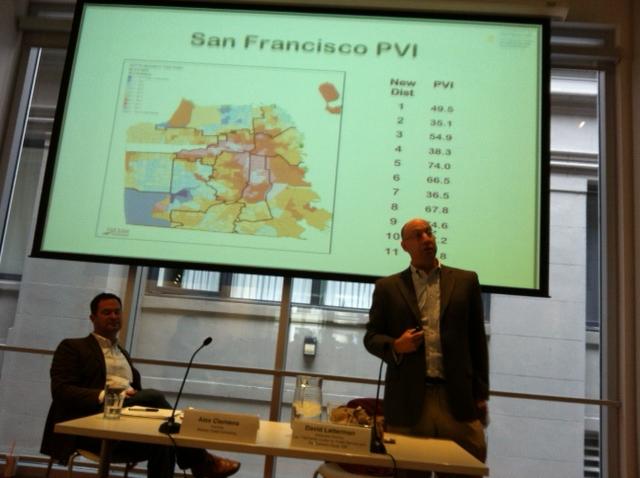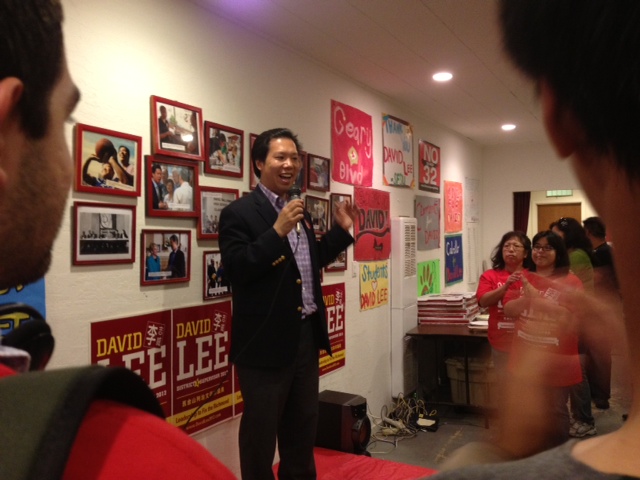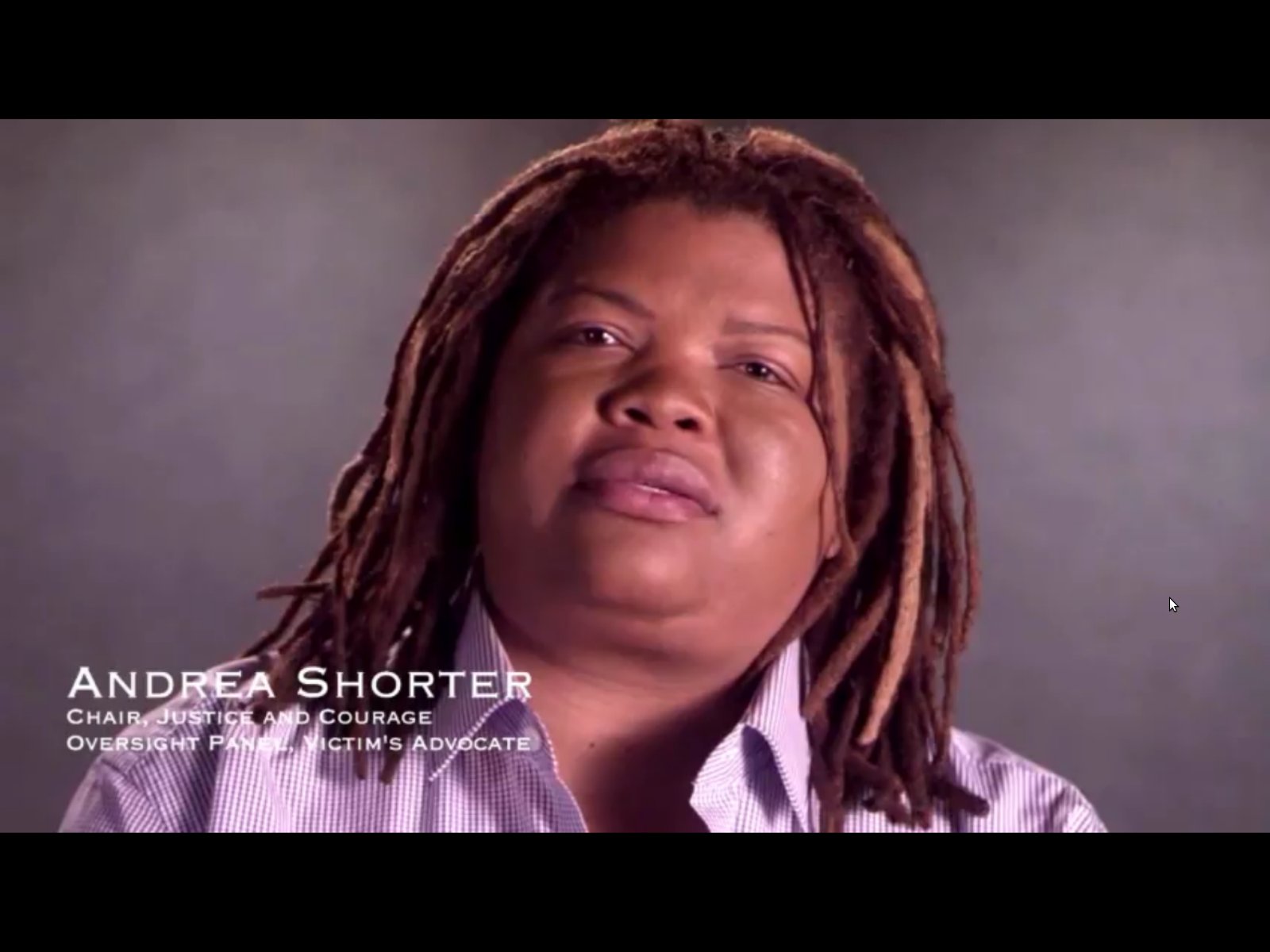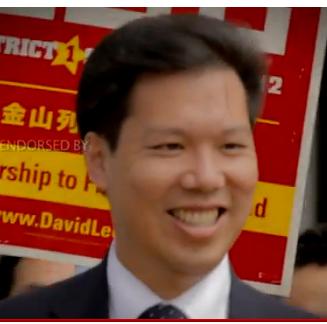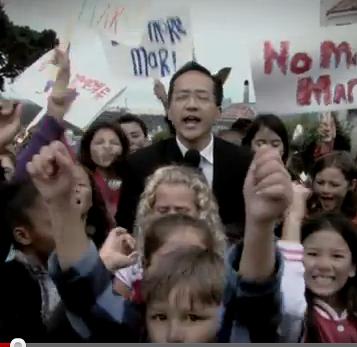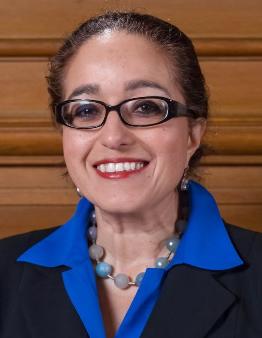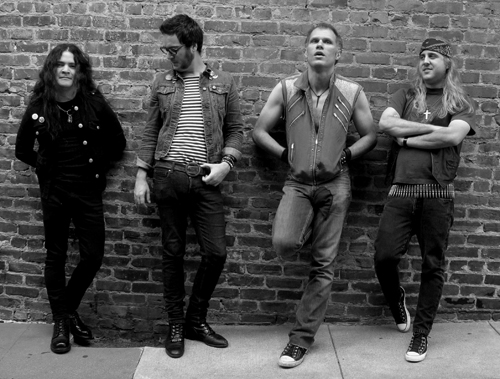news@sfbg.com
On October 6, 2010, longtime civic leader and financier Warren Hellman stood before the Bay Area Council’s annual dinner and announced the presence of a special guest. MC Hammer stepped forward to introduce the man of honor. His name was Ron Conway, and, according to the SF Business Times, he’d moved to San Francisco from Atherton six years earlier.
But now, he was acting like he owned the place.
Former Mayor Art Agnos was in the audience, and he remembers the moment well. “This guy stood up and said that we have to take the city back from the progressives,” Agnos told us. “I barely knew who he was. I’ve been in San Francisco since 1966, and here he comes telling us what to do.”
Agnos minces no words about the man who is, by some accounts, now the most powerful unelected person at City Hall despite suddenly bursting onto the political scene just last year, shortly after that event. “He’s come to San Francisco using his multimillions of dollars to buy systems and people to effectively mandate his views, to project his way of doing things onto liberal San Francisco.”
So who is this guy? He’s one of Mayor Ed Lee’s closest advisors. He’s poured more than $1 million into the last two local elections — dropping at least $625,000 in this year’s election cycle (journalist Larry Bush reports this year’s total at about $800,000). That includes $275,000 to help pass Prop. E, which lowered the business tax rates for technology companies in which he’s invested, and $69,000 to help oust Sup. Christina Olague for defying Lee and Conway on a couple of key votes.
Conway is one of the Silicon Valley’s preeminent angel investors since just after the dawn of the Internet, parlaying his early successes bankrolling Google, PayPal, and Facebook into investments with a vast array of SF-based tech companies, including Twitter, Digg, Airbnb, and Zynga.
His net worth is widely reported at $1.5 billion, but he disputes that he’s a billionaire. Business Insider obtained a leaked list of his investments in 2011 and it included 228 companies. A report on his investments that appeared on Crunchbase.com quantified many of Conway’s investments, including $10 million each in Square (the SF-based startup by a Twitter founder), Stitcher, Yammer, and Pinterest; $20 million in AddThis, $8.3 million in AirTime; $8 million in BuzzFeed; and $5 million each in Twitter, Friend.ly, and Magnetic, among more than 200 tech investments.
It’s difficult to discern his precise financial worth — but nobody doubts that it’s more than enough to funnel vast amounts into local politics, as Conway has been more willing to do than anyone in these last couple years.
There have always been wealthy people in San Francisco who have tried to throw their money — and political weight — around. Walter Shorenstein, the developer and commercial landlord, dominated Democratic Party politics for decades. Warren Hellman and Gap founder Don Fisher put money and time into political initiatives. The list goes on.
But most of them were fairly homegrown — they’d been active in the city for many years before they became political players. And they tended to make their mark in major charitable and philanthropic efforts as well as partisan politics.
Conway, while he does give money to charities like Ronald McDonald House, is a different type, part of the impatient tech generation that’s right-wing on economic policy (Conway was a registered Republican before switching to decline-to-state as he became political active here in early 2011), wants things done his way, and sees no need for community accountability.
“Warren Hellman was interested in children’s issues, public education, he wanted to invest in building community,” Sup. John Avalos told us. “Conway is all about the bottom line of his industry, and nothing more.”
Avalos complained that Conway (like many in his industry) disdains openness and public access. “It’s all behind the scenes,” he told us. “That’s how he likes to operate.”
In each of the last three years, Conway has doubled or quadrupled his political contributions. He’s the first big spender to operate in the city in the post-Citizens United era, when one rich person can play an outsized role in politics, creating independent expenditure committees that can throw around unlimited amounts of money.
And right now, a lot of City Hall insiders say, this unelected, unappointed operative is helping undermine progressive policy and send city politics in a very different direction.
WEALTHY, CONSERVATIVE ROOTS
Conway declined to be interviewed for this piece, with his press spokesperson — Aaron McLear, who served as press secretary to then-Gov. Arnold Schwarzenegger and other prominent Republicans — offering up a canned statement for print. So what little we can glean of Conway’s beginnings come from public records, other media reports, and Gary Rivlin’s insightful book The Godfather of Silicon Valley: Ron Conway and the Fall of the Dot-coms.
Ronald Crawford Conway was born in San Francisco on March 09, 1951. The middle child in an Irish-Catholic family of 12 siblings, Conway also has a twin brother, Rick. Ron Conway went to St. Stephen’s boys high school in San Francisco until he was 15, when the family moved to the wealthy nearby enclave of Atherton.
Conway’s father was a top exec at the then-Oakland-based American President Lines, which today is a major shipping company for Walmart’s goods. The elder Conway cashed out for what Conway described as “a couple million dollars,” according to Rivlin.
Driving through Atherton, you get a feel for how starkly different it is from San Francisco. Stone walls 10-feet high surround most homes, many that look like Spanish villas or small castles to the eye of a San Francisco native. The Conways home there was valued at $18 million in 2001.
It was in wealthy, conservative Atherton that Conway found his political voice, according to Rivlin’s book. “It was in high school where I became more outspoken,” Conway told him. While studying political science at San Jose State, Conway served on the Atherton City Council starting at the age of 21, mostly to “counteract the noisy student protesters at nearby Stanford,” Rivlin wrote.
While his father had been active in San Francisco politics as a Democrat, Conway got involved in local Republican politics as a teenager and worked on Nixon’s 1968 campaign for president, telling Rivlin that he and his twin brother were “dyed-in-the-wool conservatives.”
That ideology apparently stayed with Conway, who records show gave $50,000 to George W. Bush’s 2000 presidential campaign and $90,000 to Schwarzenegger, his “recover team,” and the California Republican Party in 2005-06.
But, Rivlin noted, “he was hardly someone you would describe as politically engaged.” On the issues, Conway told him, “I could care less.” He cares about government, Rivlin noted, “to the extent it has an impact on the business climate.”
GETTING HIS WINGS
Conway worked for National Semiconductor in the 1970s and cofounded Altos Computer Systems in 1979, selling it in the early ’90s and using its proceeds to become an “angel investor,” providing early capital in exchange for an ownership stake, in small tech startups in the early years of the Internet.
To Conway, being an angel seemed to be about helping the rich get richer by pumping up the first big tech bubble. His Angel Investors, LP consisted of Conway and a number of already wealthy Internet and film luminaries, from hardcore investors and disinterested tinkerers, each contributing to the pot that was controlled by Conway.
To be a part of his exclusive investment club you had to have a minimum net worth of at least a million dollars, or have a famous name, according to Rivlin. Countless of the Internet’s rising stars joined Angel Investors and its successor companies. Cobbled from myriad business journals is a small list from among many of Conway’s chosen: Dean Morton of Hewlett Packard, golfer Tiger Woods, Stanford University Engineering Dean Jim Gibbons, Twitter CEO Biz Stone, entertainer MC Hammer, venture capitalist Frank Quattrone, and Salesforce CEO Marc Benioff.
For a man who made his fortune investing in the hottest names in tech, Conway is often described as a bit of an anti-tech Luddite. Not relying on product knowledge, his strategy boils down to this: Conway trusts his first impression of a startup’s CEO. He goes with his gut, as he explains in a free Stanford YouTube class featuring Conway.
And though sometimes his companies would fail, the successes more than made up for those failures — so much so, that he had to expand. Conway started new LLCs to handle his expanding investments. Angel Investors II started with $150 million, according to Rivlin. SV Angel III and IV were no slouches either, starting with investments of $40 million apiece, according to SEC filings for the companies.
The number of investments from Angel Investors at the time of Rivlin’s 2001 book was already well over the hundreds. And the most recent numbers for SVAngel, from 2011, list the number of startups they’ve invested in at 290 companies.
Conway disciple David Lee officially took over as head of the Angels last year, according to California business filings, but several sources indicate Conway is still the largest investor in the various “Angel” branded companies.
Conway is also the head of a long list of other shadowy businesses, all incorporated in Delaware for its lax tax and regulatory policies. Among the more than a dozen companies just in San Francisco that list Conway as president, partner, founder, or agent-of-service — for which most have little information publicly available — are SV Angel Management Holding, RC Chirp Fund LLC, RC Chirp Management LLC, 2000 Washington Street, 2006 Washington Street, Conway Family Foundation, and Magillicutty LLC.
What separates Angel Investors, though, from the usual investment angels, is Conway’s unique way of leveraging his network, known as his “Rontourage.” Hundreds of tech luminaries and celebrities tied to Conway’s Angel companies have an understanding that they will trade favors, according to Rivlin’s book.
“The only caveat, whether you joined a side fund, an advisory board, or Angel Investors, was that you should lend a hand when you could,” Rivlin wrote. “If you’re in the club, you can do someone a favor and trust that somehow you’re going to get repaid for that favor,” tech entrepreneur Jad Duwaik told Rivlin.
That strategy goes a long way towards explaining what Conway is doing in San Francisco.
CEO OF SAN FRANCISCO
Mayor Lee nows seems to be getting the royal Conway treatment, and the companies Conway invests in are getting strong support from the Mayor’s Office at City Hall, from the tax breaks that Twitter and Zynga received last year to this year’s unsuccessful effort to maintain Ainbnb’s exemption from the transient occupancy tax (a decision made by the Treasurer/ Tax Collector’s Office, which defied Lee’s public lobbying on the issue).
SV Angel has investments or equity in over 103 total San Francisco startups, according to SV Angel documents leaked to Fortune last year, including Airbnb, Digg, Formspring, Wikia, EventBrite, Zynga, StumbleUpon, Justin.TV, and a little company called Twitter.
It was Twitter’s threat to leave San Francisco in early 2011, which newly appointed Mayor Lee countered with a multi-million-dollar exemption from the city’s payroll tax — followed by a repeal of the city’s tax on stock options — that first attracted Conway and his wealth to city politics as Lee’s biggest benefactor.
Conway formed the independent expenditure group San Franciscans for Jobs and Good Government to back Lee and undermine his challengers, seeding it with $100,000 and urging fellow tech titans including Benioff and Sean Parker, founder of Napster and an early Facebook backer, to do the same (see “The billionaire’s mayor,” 10/18/11).
Beyond just money, Conway tapped his connections to back Lee, filling a re-mix video of MC Hammer’s “2Legit2Quit” promoting Lee with members of his Rontourage, including local sports stars Ronnie Lott and Brian Wilson, former Mayor Willie Brown, Twitter CEO Biz Stone, and Google exec Marissa Mayer — all performing their parts on the roof of Conway’s Pacific Heights home during a party he threw for them.
Emboldened by Lee’s decisive victory and the mayor’s apparently willingness to move Conway’s agenda of propping up tech companies, Conway upped the ante this year.
RAISING THE STAKES
After successfully pushing last year’s measure exempting Twitter and other mid-Market businesses from paying taxes on new hires, Conway this year supported broadening out those tax cuts through an overhaul of the business tax that voters approved as Prop. E this year.
The measure initially pitted Conway and the technology companies against more traditional businesses, at least in terms of which companies would see tax hikes and which would get the cuts. With large payrolls and low revenue streams until they take off, tech companies stood to gain the most from the measure.
Some technology companies could see their business taxes decrease by 25 percent, while large real estate firms could see theirs increase by a similar amount. The San Francisco Controller’s Office estimated “information” companies saw their share of city tax revenues drop from 8 percent to 6 percent under the change, while “Finance, Insurance, Real Estate” rose from 23 percent to 28 percent.
In October, Reuters reporter Gerry Shih reported on an heated exchange during a closed-door meeting at City Hall in April, where Conway reportedly cut off SF Chamber of Commerce leaders, telling them they “need to get on board” with backing the tax overhaul because “the tech industry is producing all the jobs in this city.”
That may not be entirely true, but Conway and his tech allies are certainly acting as if they are indispensable to both the business community and the city’s political landscape. The next month, on May 11, Conway donated $49,000 to the newly formed Mayor Ed Lee for San Francisco Committee.
And that was just the beginning of spendy year for Conway, from the $275,000 he spent to help pass Prop. E to the $69,000 that he and his wife Gayle contributed to San Francisco Women For Accountability to go after Olague for defying Lee by supporting efforts to have Prop. E bring in some extra revenue, creating CleanPowerSF, and the reinstating Sheriff Ross Mirkarimi.
Now, Conway has pledged to fund the campaign to recall Mirkarimi, continuing his efforts to support Lee and undermine progressives into the new year.
CONWAY’S AGENDA
Whether the Conway-funded attack on Olague was about power, payback, domestic violence, or something else is difficult to say for sure. But his formation earlier this year of San Francisco Citizens Initiative for Technology and Innovation (sf.citi) made clear his politics and agenda in a strange video it made.
The video talks about the range of San Francisco’s problems — you can’t get a cab fast enough, Muni doesn’t work very well, and there’s trash and graffiti on the streets. All of these problems, the video suggests, can be solved with technology. But there’s nothing in the video, or in sf.citi’s agenda, about homelessness or poverty or the gap between the rich and the poor — or the fact that the tech boom is making a lot of those problems worse.
In fact, sf.citi — and Conway’s agenda — offers nothing for San Franciscans who are not middle class or above. There is no suggestion of an app for facilitating improvements to dilapidated public housing in the city, or for a map of free immunization clinics in low-income neighborhoods, or a database for easily tracking the political influence of Conway and his wealthy friends.
In the end, Conway had only this to stay in a statement delivered to us by McLear: “I am very proud to support Mayor Lee and members of the Board of Supervisors who are tackling the important issues facing our City head-on, from creating jobs for San Francisco residents to building more affordable housing to improving our parks, transit and infrastructure.
I became involved in San Francisco politics and formed sf.citi with leading technology companies because we believe that the technology industry shares in the responsibility to solve our City’s challenges and give back to our community. That’s why I donated generously this year to support consensus measures for our parks, City College, affordable housing and protect Hetch Hetchy, and why sf.citi and so many of its member companies supported these measures as well. sf.citi member companies and I will continue to partner with City leaders and communities to give back to the City we love and work together to create jobs and to improve our public transit, public schools, public safety and the lives of every San Francisco resident.”
But his record shows that he’s mostly interested in how the public sector can help the private sector. McLear says that Conway has supported many Democrats; that’s true of almost anyone who tries to be a power-broker in a city where Republicans are a tiny minority.
“He is not right-wing,” McLear said, but when we asked McLear to tell us if Conway had ever supported a measure to raise taxes on wealthy people, we got no response.
That’s because Conway’s agenda is about — as he himself announced at the Bay Area Council and again later at the Commonwealth Club — repealing the progressive agenda. “He wants to make this a totally business-friendly city with nothing that would slow down his plans or those of his friends,” Agnos said.
Adds Avalos: “He wants San Francisco to be a mirror image of Silicon Valley, but he doesn’t have any real concern for the social impacts for working people, renters, and the rest of us.”
Conway’s role in the campaign to defeat Olague showed a fascinating, and dangerous, side of his politics. When Lee first named Olague to the Board of Supervisors, she told us she was introduced to Conway as someone who would support her.
“Willie Brown collected some checks from him,” she told us. She also said caustic mayoral aide Tony Winnicker, who sent Olague a vicious text message after the Mirkarimi vote with a vow to “defeat you,” is Lee’s main liaison to the tech industry. That vote was the last straw after she didn’t play along with Conway on taxes and defeating CleanPowerSF, so the Conway shithammer came down.
“It was a calculated, cruel political strategy to punish her, and to send a message to other politicians that this is what happens if you cross him,” Agnos said. “And that message is going to spread unless progressives stand up against it.”
Added Olague: “I’ve never seen anything like this.”
And Conway doesn’t like to operate in the sunshine. In fact, that’s a key part of his political strategy: Rather than contributing to existing organizations — the Chamber of Commerce, for example — Conway sets up his own independent committees, sometimes several in an election cycle. That can make it harder for the public to follow the money.
Avalos said the main problem with Conway is that “his campaign contributions gives one person, him, overwhelming influence in San Francisco elections and puts San Francisco’s democracy at great peril. ” Steven T. Jones and Larry Bush contributed to this report

